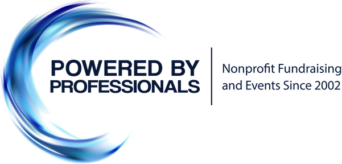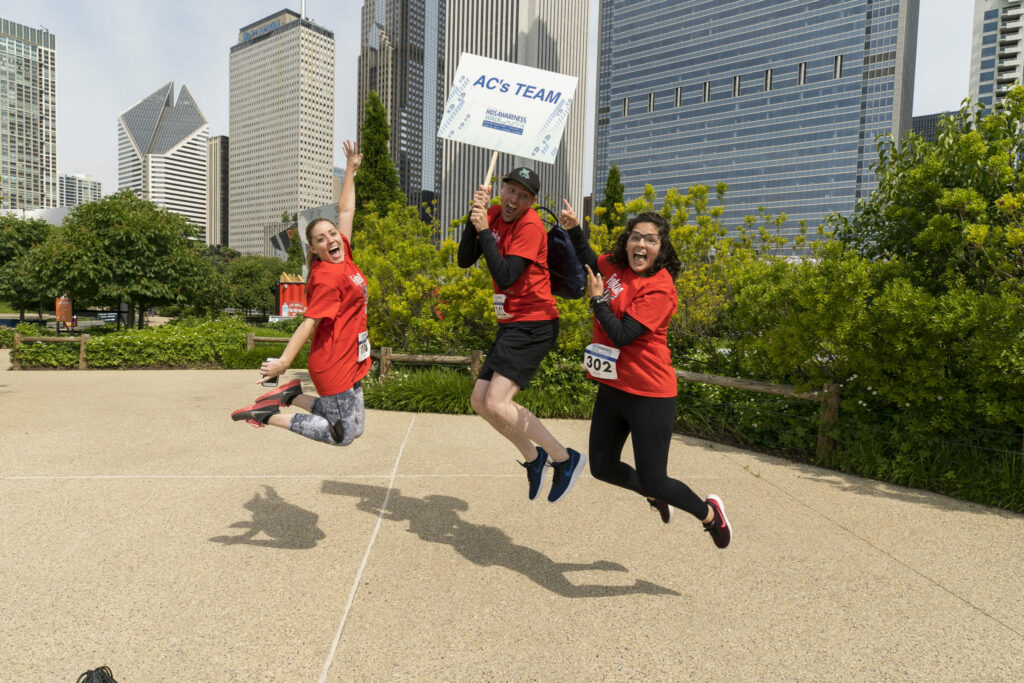This month we interviewed two inspiring women, both battling rare forms of cancer, who have channeled their passion to make a difference for their cause into very successful peer-to-peer fundraising campaigns. Jodi Kaye created a DIY fundraising event to benefit Oligo Nation, and Ashley Cámara created a fundraising team for the Chicago MDS Awareness Walk. In the following interviews, both women share their advice for successful peer-to-peer fundraising strategies and show how it enabled them to share their story and create a strong community of advocates out of their existing network of friends, family, and colleagues.

Ashley Cámara
MDS Foundation Courage Award Honoree and Advocate for the MDS Foundation
- How did you first get involved with the MDS Foundation? My doctor in Mexico mentioned the MDS Foundation as an opportunity for me to learn more information about MDS. After I moved to the United States for treatment, my social worker at the hospital where I was being treated mentioned it once again. I then started looking into the Foundation and ways I could get help from them.
- What does receiving the Courage Award mean to you? First, I have to start by saying how I feel honored and humbled to even be considered for this award. I think courage is something that sits deep inside us all, and when the time is right, we find a way to harness it. Receiving the courage award helps give me strength to keep advocating, and to be a voice for those that can't.
- This is the second year you have created a team for the upcoming walk in Chicago. What did you find most challenging when trying to reach your goal and raise money last year? The most challenging part was encouraging my group of young friends to get involved as their economic situations vary and it was difficult for some to make a commitment. I found, that rather than asking for a specific donation amount, it was more effective to just ask for them to support in any way they can and focus on sharing my story and why supporting the MDS Foundation is so important to me.
- Do you have a different approach this year? My plan is to show my friends, family and acquaintances pictures from last year's event to motivate them to join my team this year. I am also going to public places to put a flyer on their community boards. Additionally, Powered by Professionals sent me customized social media squares and flyers with links to donate to my team's page, so I plan on using these to help spread the word and gain support for my team!
- Who did you reach out to? How? What did you say? I reached out to people via social media as it has been the best way for me to get the word out. I used text messaging to friends and family with the event information links so they can register and join me. I mentioned that it would be very meaningful to me to have everyone join me as it is something very important and close to home as I survived this disease. The best way to honor myself and people who have lost the battle with any type of cancer (including my brother that passed away from MDS and Leukemia) is giving back to the same community that has helped me and is helping others. This event is a great opportunity for me to do just that.
- Was it difficult at first reaching out to family, friends, and colleagues to ask for financial support? How did you overcome any uncertainty? With every fundraising event, there is always a difficulty trying to reach out to people to donate and get people involved. Luckily, many of my friends, family and colleagues know about my situation and how important it is to me to be an advocate and support others that I usually get a favorable response. With respect to uncertainty, I think you just have to keep in mind and be realistic that some may or may not be able to help support. You just have to keep going forward and also not take it personally when people can't help.
- What advice or tips would you have for someone who is signing up and creating a team to fundraise for a Run/Walk for the first time?
-
-
-
- First ask the people that you are somewhat certain would be willing to help (family and closest friends).
- Ask people with enough time so they can plan and budget in order to help.
- Share your story and share why doing this walk/run is important to you.
- Be creative while advertising. I created t-shirts the first year to honor my brother and others.
- Use social media to reach out to other friends and acquaintances.
- Most of all, have fun!! Let yourself enjoy and meet other participants that probably share your same journey. Sometimes you can feel alone, but once you go to these events you realize how wrong you were.
-
-
-
- What positive impacts have you experienced from participating in peer-to-peer fundraising? One of the main positive impacts that I have experienced has been the support I've gained from others and the friends that I've made and keep in contact with on a daily basis. Being involved has helped lift my spirits and motivated me to be an advocate.

Jodi Kaye
Oligo Nation Courage Award Honoree and creator of Team Courage
- How did you first get involved with Oligo Nation? In November of 2010, I was diagnosed with a rare brain tumor known as an oligodendroglioma aka "Oligo." Due to how rare Oligo is, most people have never even heard of it and there is little funding for clinical trials and research into treatments for this unique condition. I was first involved with an organization called Voices Against Brain Cancer, and that is actually how I met and became friends with Darren Port. My Dad was the person who first mentioned Oligo Nation to me when he shared that he had been donating to a charity that is specifically dedicated to raising funds and supporting medical research into finding a cure for Oligo. In 2018, I reached out to Darren to see what he knew about Oligo Nation and learned that he had already been talking with the founder Brock Greene about working with his organization. From there, I decided to create Team Courage and host my own DIY fundraising event to benefit Oligo Nation.
- How did you come up with the idea for the Spring Inspiration Event? I wanted to share my story with my friends, and I have a background in event planning as I worked in the hospitality business for 25 years, so it just made sense for me to plan an event. My initial goal was to connect my wide-reaching network of family, friends, and coworkers to share my story, spread awareness of Oligo, and encourage them to give what they can to support me and Oligo Nation. The resulting event took place at my dear friend Alyse Mandel's apartment and raised $50,000. The following year, with guidance from PBP, the event was expanded to reach the entire Oligo Nation community and was able to quadruple the funds raised to $200,000!
- How did you make it happen? What was your plan for raising the money? Who did you reach out to for help and what did you say? I enlisted the help of a small group of friends to help get the event off the ground. Someone created an invite for a gathering at my friend's apartment at which I would share my story and put it online. I then shared it with basically everyone I knew and my friends did the same. We encouraged people to "buy tickets" for the event or donate on my behalf. Everything just grew from there as the invitation was spread around. Some items were donated so we decided to have an auction and some of my family wanted to speak at the event, so we had some informal speeches from them and Dr. Ranjit Bindra from the Yale School of Medicine.
- What did you find most challenging when trying to raise money and increase support to reach your goal? I went into this event definitely hoping to raise money, but also because I'm an event planner I really wanted to make sure it was a nice event where I could gather my friends, have a great time, and share my story.
- Was it difficult at first reaching out to family, friends, and colleagues to ask for financial support? How did you overcome any uncertainty? I didn't find it difficult to reach out to them. I just left it up to them to donate what they wanted or could, and every time I saw how much they gave I was touched by how generous everybody was. It was very moving and very personal because it was all my friends supporting me.
- What advice or tips would you have for someone who is participating in or creating a peer-to-peer fundraiser for the first time? You need a group of people who are willing to help you plan, push you through the tough times, and support you when you want to give up. I had a group of 5-10 people who shared my passion to make this event happen and even when it got overwhelming and I wanted to stop, they told me "You can do this! Let's just make it a fun party." Focus on making the event the best party ever, and not a somber event about brain cancer. My mindset is that I am lucky to be here, so let's celebrate! And hopefully in the process we can raise enough money to find a cure.
- What positive impacts have you experienced from participating in peer-to-peer fundraising? It's good to be kind, and I'm lucky to have made so many great friends over the years. It was humbling and honoring to see friends and family get behind me and my story, and it was really my friends that made the event a success. The event was lively and fun and a celebration because of them.

